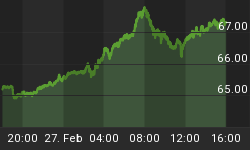According to the International Institute for Democracy and Electoral Assistance, an intergovernmental organisation, at least 69 countries and territories had postponed national or subnational elections as a result of Covid-19 between 21 February and 11 August. Some 53 have gone ahead, but usually in a modified format or following a delay.
Risks and rewards
The pandemic has given rise to two main risks related to electoral processes.
On the one hand, if voting goes ahead largely as normal, this could pose a considerable public health risk. As a result, voters may be unwilling to turn out. For instance, the second round of Mali’s legislative elections, held on April 19, saw a considerable drop in participation relative to the same phase in the previous election.
On the other hand, measures intended to mitigate this – such as expanding remote voting, or indefinite postponement – can become politicised. One example of this is the US, where the discussion around postal voting has precipitated a partisan conflict. Likewise, the suggestion that November’s presidential elections be postponed has met strong resistance.
Moreover, risk mitigation, including enhanced health and safety measures, can lead to significantly higher costs. For example, prior to the July parliamentary elections, the National Election Commission of Sri Lanka estimated that they would cost up to LKR7bn ($38.6m) more than the previous election as a result of Covid-19, with LKR1bn ($5.5m) to be spent on health equipment.
In some countries with less-developed administrative infrastructure – among them Myanmar and Pakistan – citizens are traditionally required to ink their thumb or forefinger on an ink pad after voting as a fraud-prevention measure. In the context of Covid-19, however, enforcing this would create a serious risk of infection, and new solutions will have to be found.
There is thus no one-size-fits-all solution to elections during Covid-19. However, a bespoke blend of measures can address some of the main challenges.
It was observed that a switch to postal voting resulted in an uptick in voter participation during recent elections in the German state of Bavaria. On a similar note, by expanding early voting options and implementing a ‘code of conduct’ for voters, South Korea was able to drive an 8% increase in voter turnout for its elections in April, relative to the previous election in 2016.
In other countries, lockdowns have ruled out political rallies, meaning that campaigning has largely been done online, as was the case in the run-up to the elections in Singapore on July 10. However, it has been argued that smaller political parties may lack the funds to compete with established players in effective online campaigns.
More broadly, the shift online tends to boost incumbents, given that challengers have fewer opportunities to engage with voters. Incumbents may also benefit from increased media attention as a result of their handling of the pandemic, although this can also backfire.
Voting goes digital?
One of the most salient aspects of elections during Covid-19 has been a broad-based shift online, seen among political parties and electoral authorities alike.
For example, earlier this month the Ghanaian Electoral Commission introduced a digital queue management tool to ensure social distancing during voter registration. The country’s presidential elections are set to go ahead as scheduled in December, amid assurances from authorities.
Meanwhile, although postal voting remains the most common form of remote voting, digital solutions are on the rise. Related: Markets Up On Stimulus Hope
But approaches involving electronic voting bring their own set of issues. Online solutions must come with a series of cast-iron guarantees related to transparency, accuracy and security. If not, they can potentially lead to mistrust among voters and disputed results.
Furthermore, in countries with limited or unreliable ICT infrastructure, digital approaches are more complex to implement and sustain, and political parties with a strong voter base in poorer or rural areas would stand to lose out.
Some have suggested that in such contexts voting could be tied to popular mobile payment technologies. While this solution would not be without its own challenges, it may give people a direct sense of participation in democratic processes.
In addition to short-term solutions, online voting can potentially offer long-term gains if implemented effectively, by increasing involvement, making leaders more accountable, improving the transparency of processes, and enabling political parties to connect more directly with younger people. As such, it is to be hoped that some positive new approaches will be maintained after the pandemic wanes.
By Oxford Business Group
More Top Reads From Safehaven.com:
















